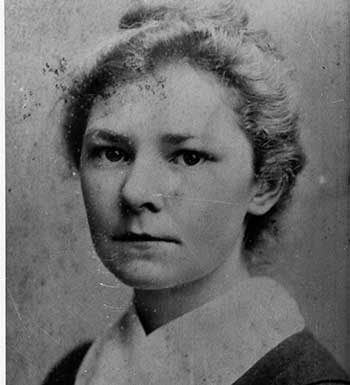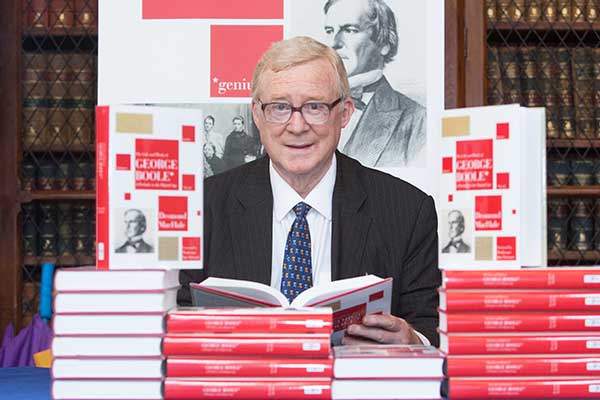THIS year marks the bicentenary of George Boole's birth.
A forefather of the information age, Boole may not be a household name but without him we wouldn't have the mobile devices, iPads and computers we rely on for communication or the electronic circuits and controls that support 21st century life.
To celebrate his genius, exhibitions on Boole are being held in University College Cork and Boole’s hometown of Lincoln.
Boole was the first Professor of Mathematics at Queens College Cork (now UCC) in 1849, and the library at UCC is named after him.
During his time in UCC he wrote his seminal work An Investigation of the Laws of Thought.
UCC Library also holds a collection of Boole's personal papers and correspondence, documenting his time in Cork.
In his first letter penned from Cork, shortly after the Famine he writes:
I have at length arrived at scene of my future labours and have taken what I think will prove comfortable lodging close by the college. The situation and the prospects around are all that could be desired. The river Lee flows in front of us through a beautiful valley the sides of which are covered with wood in many parts, an unusual sight in Ireland, and with suburban villas, Cork is so far as I have yet seen is [sic] a very pleasant and indeed a rather fine city.”
Later he wrote to his former students in Lincoln to tell them how he was settling in and offer these words of encouragement:
How delighted I shall be on my return to my native city if I learn that you have been good boys steady to your labours, faithful [?] and obedient to your teachers, kind and courteous to each other, obliging to all with whom you have to do. Remember well that by faithful honourable conduct you will promote your own happiness now and hereafter. Accept my best kind regards….your former teacher and affectionate friend. PS I shall be proud to hear from any of you.”
Boole’s biographer Professor Des MacHale's 10 most interesting things about George Boole:
1. Invented Boolean Algebra, which is the basis of modern computers and electronics.
2. Both a crater on the moon and an asteroid bear his name.
3. Married educational psychologist Mary Everest in 1855, a niece of the man after whom the world’s highest mountain is named.
4. They had five talented daughters, one of whom Ethel Voynich, wrote the best-selling novel The Gadfly.
 Boole's daughter, the writer Ethel Voynich
Boole's daughter, the writer Ethel Voynich5. Became Professor of Mathematics at Cork University without secondary education or a third level degree—almost entirely self-taught in Science and languages.
6. Believed to be the inspiration for Professor James Moriarty, the arch-villain of the Sherlock Holmes stories.
7. Was the founder of Pure Mathematics and the father of modern Probability Theory.
8. Became a teacher at the age of 16 and opened his own school at the age of 21.
9. Grandfather of Sir Geoffrey Taylor FRS, one of the world’s most famous applied mathematicians who worked on the first atomic bomb.
10. Died at the age of 49 after walking to college in a heavy rainstorm.
The exhibition at UCC Library is open to the public until the end of 2015, with free entry. See GeorgeBoole.com
The Life and Legacy of George Boole will run until Friday 11th September 2015 at The University of Lincoln’s Great Central Warehouse Library.


